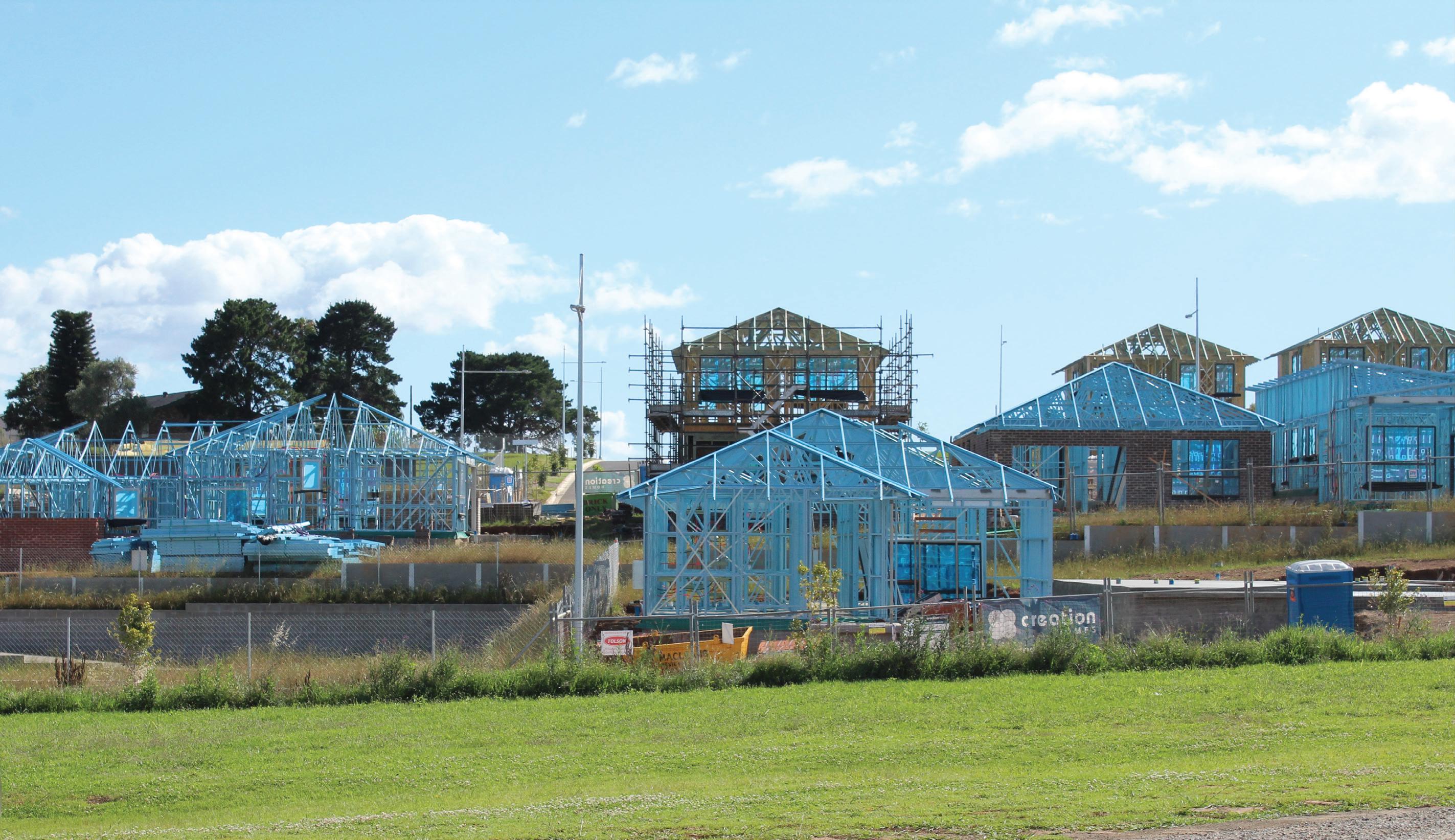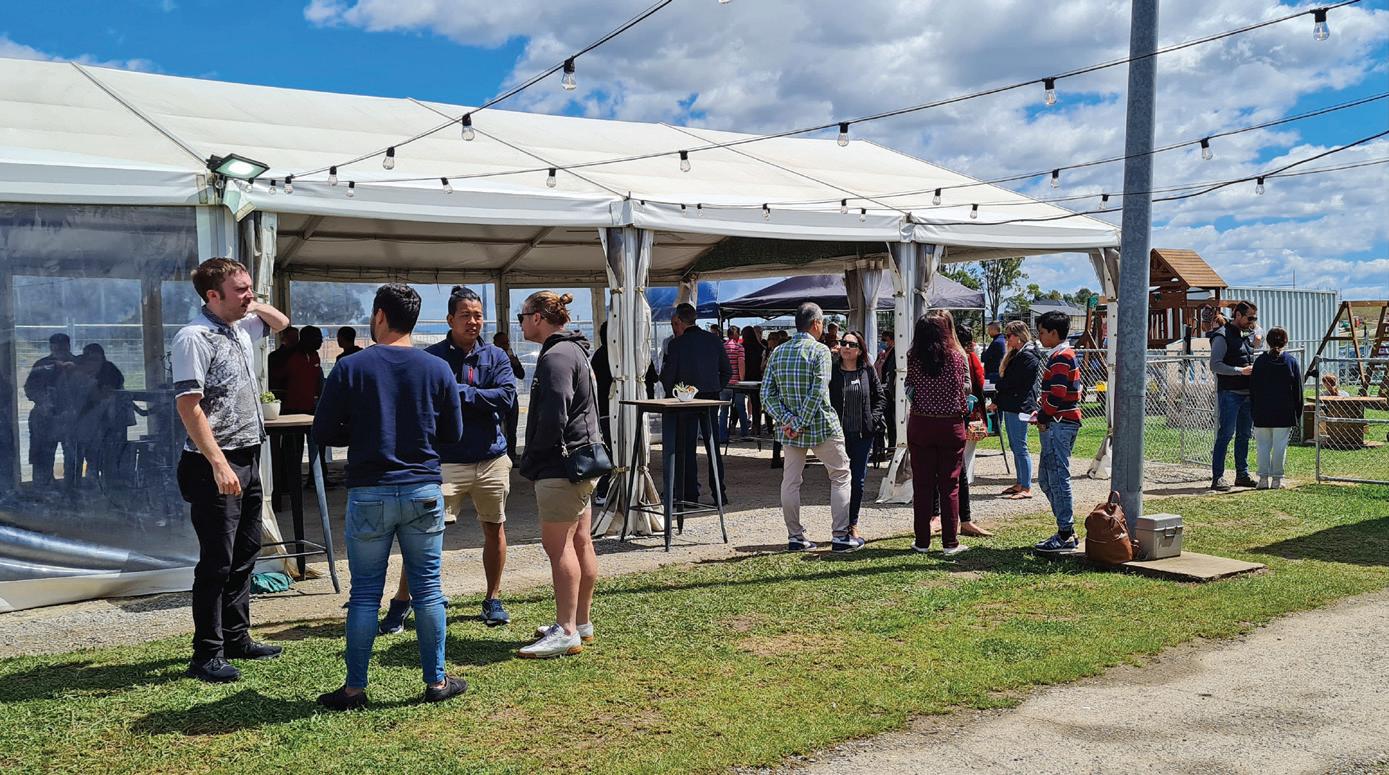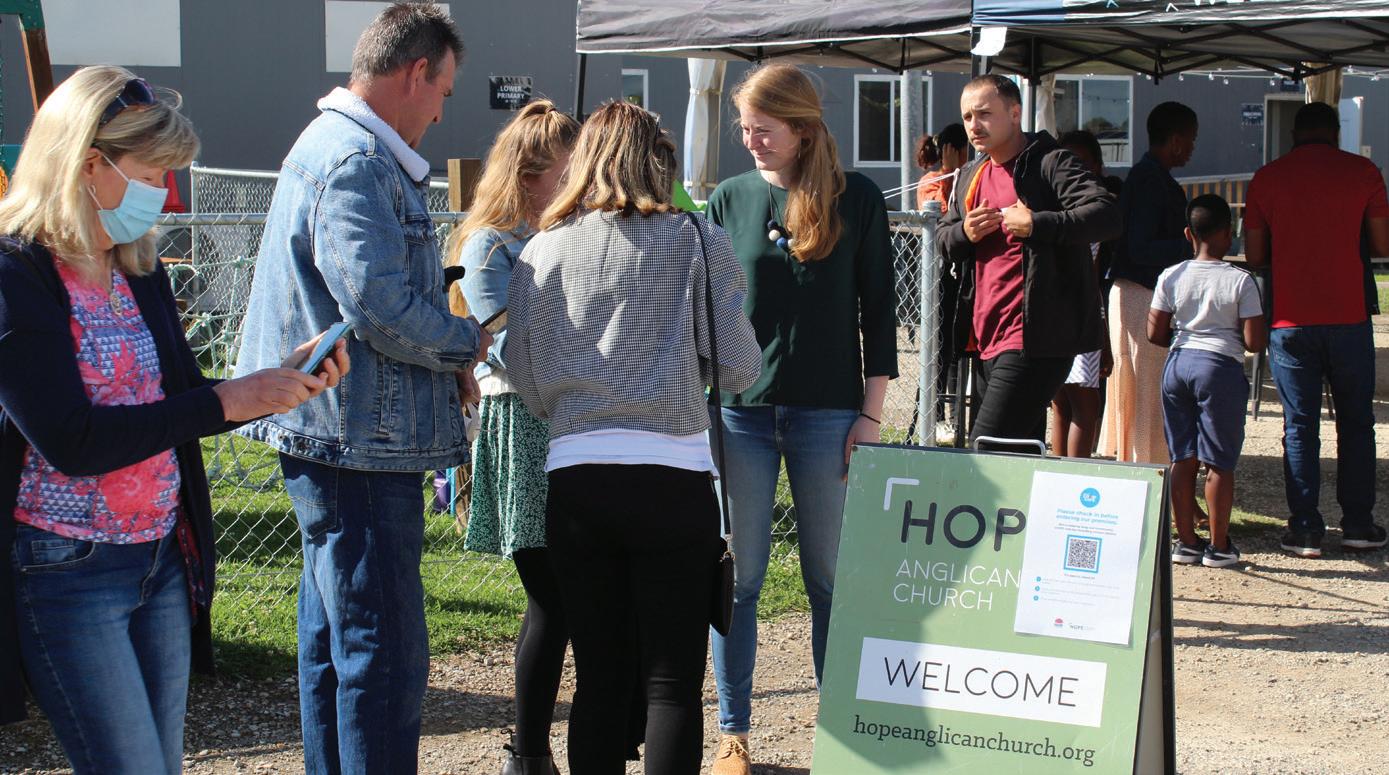
6 minute read
The harvest is plentiful
Kanishka D Raffel / Anglican Archbishop of Sydney
SYDNEY IS GROWING. FUTURE PLANNING BY THE GOVERNMENT IS BASED ON THE CONCEPT OF THREE CITY HUBS EVOLVING OVER THE NEXT FORTY YEARS.
‘Central River City’ will be based around Parramatta, ‘Eastern Harbour City’ around Sydney harbour and ‘Western Parkland City’ based around the new Nancy-Bird Walton Airport at Bradfield in Western Sydney. At the same time, the last two years of pandemic and the rise of ‘work from home’ has seen numbers of people opting for ‘tree changes’ and ‘sea changes’ to the mountains or the South Coast. The Diocese of Sydney spans all these geographic areas and we are bound under God, to prayerfully, sacrificially and with loving boldness seek to bring to communities across every part of the diocese the glorious gospel of the Lord Jesus Christ.

It is projected that by 2030 (just eight years away— two Olympics!) more than 50% of Greater Sydney’s population of 5.8 million people will live west of Parramatta. When I consider such figures, I cannot but hear the words of the gospel writers, who recorded that when Jesus ‘saw the crowds, he had compassion on them because they were harassed and helpless, like sheep without a shepherd. Then he said to his disciples, “The harvest is plentiful but the workers are few. Ask the Lord of the harvest, therefore, to send out workers into his harvest field.”’ (Matthew 9:36-38)
The biblical word ‘compassion’ is a metaphor. It refers to something akin to a ‘kick in the guts’. A deep feeling, not a mere sentimentality. A propulsive feeling that stirs one into action, not just a passive and fleeting emotion. When Jesus looks at the crowds with ‘compassion’ we are meant to understand that he has a longing and yearning for them, that will ultimately take him to the Cross. Similarly, the phrase ‘sheep without a shepherd’ has a long biblical pedigree. God is referred to as the Shepherd of his people in the Book of Genesis (eg. 48:15, 49:24), and as Moses approaches death, he prays that the Lord would not leave his people ‘like sheep without a shepherd’ but raise up a leader to succeed him.

Jesus’s words to his disciples are striking for a couple of reasons. First, it is clear that Jesus means to involve his disciples in the work that is the response to his compassion for the crowds. He means to be the Shepherd to his people, but he will enlist ‘under-shepherds’ as his agents and emissaries. This was by no means the typical pattern of ancient rabbis, whose disciples followed them in order to learn from their wisdom.
The disciples of the rabbis did not share in their rabbis’ work. They were recipients not participants. But Jesus enlists his disciples in his work, and equips them for the task: ‘Jesus called his twelve disciples to him and gave them authority to drive out impure spirits and to heal every disease and infirmity’ (Matthew 10:1). Second, Jesus asks his disciples to pray for workers and then appoints them as workers. In other words, they become the answer to their own prayer.

And third, Jesus enlists co-workers in his mission because the ‘harvest is plentiful’. The Lord intends to have a big harvest, a bumper crop! Chapter 10 of Matthew’s gospel describes how the disciples are sent first to the ‘lost sheep of Israel’, but they are promised (warned!) that in time they will stand before ‘governors and kings as witnesses to them and to the Gentiles’. The mission begins with Israel but will embrace the nations. The twelve are sent out in the first instance, but a vast cohort of workers whom God raises up in answer to their prayers will follow.
As we contemplate the scale of the task before us and the Lord’s command and promise to raise up workers for the harvest field, what a joy it is that in Moore College the diocese has a partner that is dedicated to serving the purposes of God and the pressing needs of our mission in Sydney. The forecasts suggest that the new city of Bradfield, to be located next to the new airport, will have a population of 1.5 million people. (That was about the population of Perth when I moved there with my family in 1999.) We currently have three churches in that area. According to McCrindle research, about 8% of Australians attend church at least once a month.*1 As a proportion of 1.5 million people, that’s 120 000 souls. If as Sydney Anglicans we sought to gather up just 10% of the 120 000 people who might already be Christians or have a desire to attend a church in the new community where they have chosen to make their life; and if we asked the Lord to grow churches of say, 500 people each, we would need 24 church planters. To this we must add the teams of co-workers each planter would require to partner in the work. And this is before we even begin the further and essential work of reaching out with the hope of the gospel to those who will take up residence in that area without any knowledge of the Lord or his love for them. We are not seeking to establish new church communities only for Christians who move to new areas, but to bring new birth to those who, as we once were, are spiritually ‘dead in transgression …and by nature objects of wrath’ (Ephesians 2:1,3).

To undertake this work will require men and women who are moved by the compassion of Jesus and the call of Jesus to labour at his side in his harvest field, who have the very best equipping possible in the Scriptures and the ‘work of ministry’. Moore College is central, but not alone, in providing this equipping. It takes the corporate discipling and encouragement of the local church; the practise of ministry in a local congregation, or community, workplace or educational environment; as well as the rigour, reflection and refining of theological study in community to form those who are willing to devote their lives to this task, whether in full time vocational ministry or as fellow-workers sharing ‘the gospel and their lives’ in the community more broadly.
As we face the challenges and gospel opportunities of the growth of our city, please join me in thanking God for the gift of Moore College, its faculty and students, and ask the Lord of the harvest to send out workers into his harvest field, fully equipped in the knowledge and love of his Word and the power of his Spirit so that by all possible means we may share in the Lord’s joy as he gathers in his own.
1 https://mccrindle.com.au/insights/blogarchive/church-attendancein-australia-infographic/









